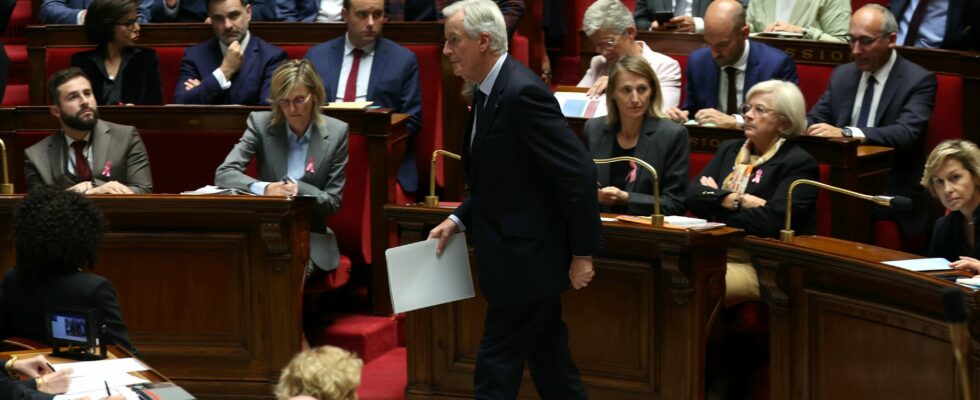Michel Barnier wants to involve the richest in the recovery of public finances. The Prime Minister pledged, this Tuesday, October 1, to reduce France’s public deficit to 5% of GDP in 2025 by involving “large companies” and the “most fortunate French people”, warning that the debt “colossal” of the country risked leading it “to the edge of the precipice”.
“The real sword of Damocles is our colossal financial debt […] which, if we are not careful, will place our country on the edge of the precipice”, affirmed Michel Barnier before the deputies, committing to a speech of “truth” on public accounts during his general policy declaration .
France’s public debt continued to swell at the end of June, reaching 3,228.4 billion euros – or 112% of gross domestic product (GDP) – at the end of June, while the public deficit is expected to exceed 6%. in 2024.
Reduce the public deficit to 5% of GDP in 2025
This is very far from the maximum of 60% of GDP set by European budgetary rules, which also set a public deficit of maximum 3% of GDP. To restore very degraded public finances, and reduce the public deficit to 5% of GDP in 2025 then “under the ceiling of 3%” in 2029, two years later than the deadline set by the previous government, Michel Barnier intends to reduce spending while playing on the tax lever.
“The first remedy for debt is reducing spending. In 2025, two thirds of the recovery effort will therefore come from reducing spending. Reducing spending means giving up magic money, to the illusion of everything being free, to the temptation to subsidize everything,” he declared. However, “participation in collective recovery” will also be requested “from large companies which make significant profits” as well as “an exceptional contribution” from “the most fortunate French people”, in the name of the “demand for tax justice”, he added.
